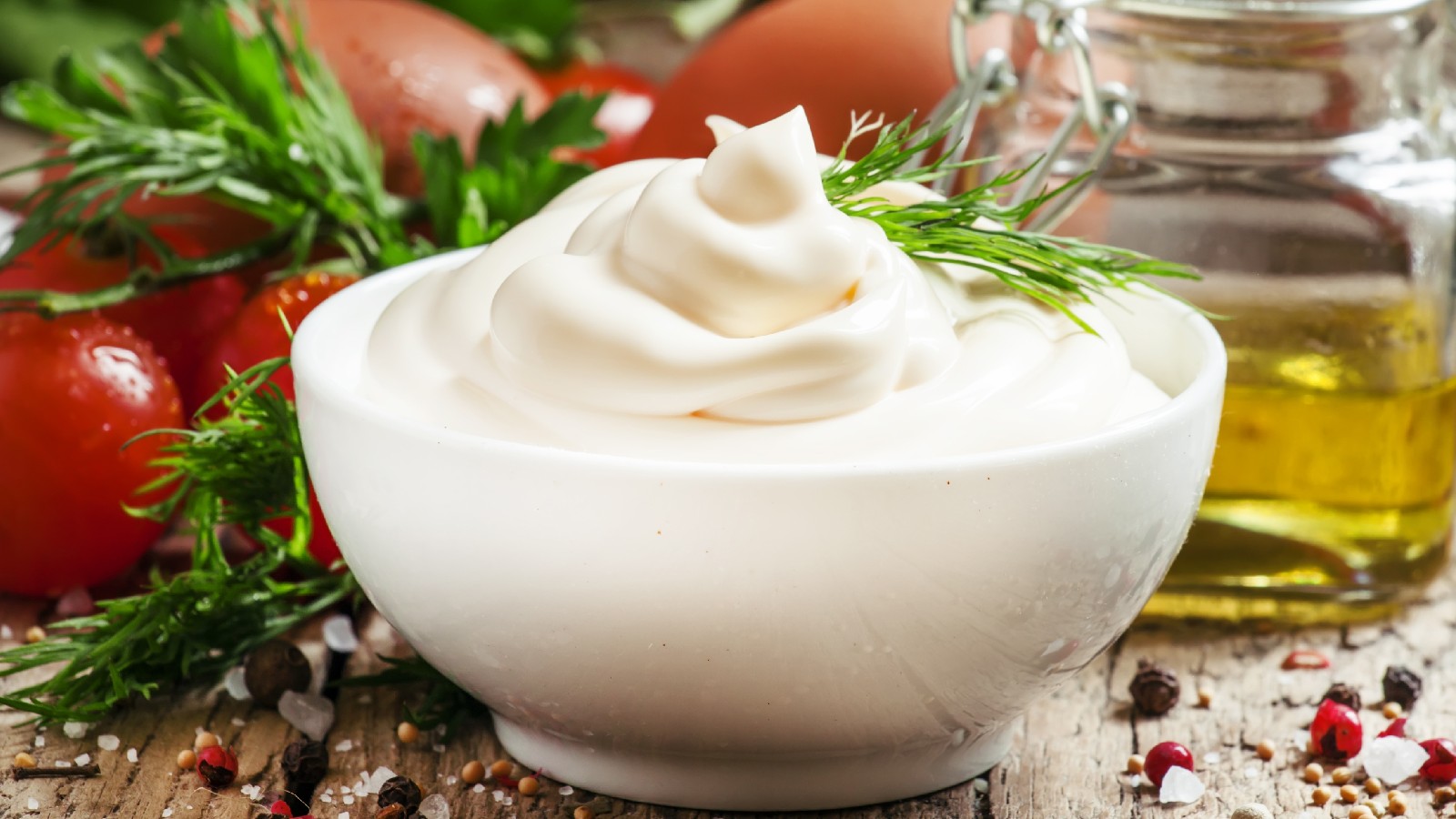Mayonnaise is a creamy sauce with a rich flavour, thanks to ingredients like eggs. But considering the Telangana government banning mayonnaise with raw eggs, you may wonder about its safety.
Mayonnaise is a creamy way to turn a boring sandwich or salad into something delicious. No wonder it is a favourite when it comes to creamy dips or dressing. Traditional mayonnaise has a rich flavour due to the egg yolk. While all the ingredients used to make this sauce are important, eggs have a special spot. They are the ones that help to bind other ingredients together. But some may have safety concerns, especially after the Telangana government in India reportedly announced a one-year ban on the production, storage and sale of mayonnaise with raw eggs amid food poisoning cases in the state.
Health risk of eating mayonnaise with raw eggs
The main health risk associated with mayonnaise with raw eggs stems from the potential presence of Salmonella bacteria in those eggs. Salmonella, a foodborne pathogen, is a major cause of gastroenteritis, as per research published in the Antibiotics journal in January 2024. “It is a type of bacteria that commonly contaminates raw eggs, and when ingested can cause salmonellosis. It is a form of food poisoning characterised by symptoms like nausea, diarrhoea, and abdominal cramps,” says dietitian Ramya B. In some cases, Salmonella infection can lead to complications such as dehydration or, in severe cases, bloodstream infections.

Mayonnaise with raw eggs has a short shelf life and needs to be refrigerated at all times to prevent bacterial growth. Leaving it at room temperature, even for a few hours, can cause Salmonella or other bacteria to multiply rapidly, increasing the risk of foodborne illness.
Is homemade mayonnaise with raw eggs safe?
Homemade mayonnaise with raw eggs carries some risk of Salmonella infection, just like commercially prepared raw egg-based mayonnaise. “While homemade version can be safe if made with fresh, high-quality eggs, there is always a chance that even fresh eggs could contain Salmonella,” says the expert.
To reduce this risk, you can take the following precautions:
- Use pasteurised eggs: These eggs are generally safe to use in raw applications like homemade mayonnaise. They are submitted to a mild thermal treatment, but sufficiently to kill salmonellae, as per research published in the International Journal of Gastronomy and Food Science in 2022.
- Proper storage: Homemade mayonnaise should be kept refrigerated immediately after preparation and should not be left at room temperature for a long time, as this can lead to bacterial growth. “Homemade mayonnaise typically lasts about 3 to 4 days in the refrigerator,” says Ramya.
- Small batches: Making small batches of this sauce ensures it is consumed within a few days, reducing the risk of spoilage or bacterial growth over time.
How to make mayonnaise with raw eggs?
Raw eggs are essential in traditional mayonnaise because they act as an emulsifier, helping to blend oil and vinegar or lemon juice into a creamy mixture. Since egg serves as an emulsifier, it controls the texture and stability of mayonnaise, according to research published in the Food Hydrocolloids journal in 2019. “The lecithin in egg yolk binds the ingredients together, giving mayonnaise its thick, smooth texture. The raw egg also adds flavour and richness to the sauce,” says the expert.

How to make mayonnaise with raw eggs?
Ingredients:
You may also like


- 1 large egg
- 1 cup neutral oil (such as canola or sunflower oil; olive oil can also be used for a richer flavour)
- 1 tablespoon vinegar or lemon juice (for acidity and preservation)
- 1/2 teaspoon of salt
- 1/2 teaspoon mustard (optional)
Method:
- Make sure the egg is at room temperature, as if the ingredient is cold it might interfere in forming a smooth texture.
- In a tall mixing jar, add the egg, vinegar or lemon juice, salt, and mustard (if using). Blend them well until the mixture gets combined.
- While blending, slowly drizzle in the oil. It’s important to add the oil gradually, especially at first, to help form the emulsion and prevent separation. Continue to blend until the mixture thickens and takes on a creamy, mayonnaise-like texture.
- Taste the mayonnaise and adjust salt, acidity, or other seasonings if desired.
- Transfer the mayonnaise to a clean jar, seal tightly, and refrigerate, but use within 3 to 4 days.
How to make eggless mayonnaise?
Ingredients:
- 1/2 cup milk (use unsweetened almond or soy milk for a vegan option)
- 1 cup neutral oil (such as sunflower or canola oil)
- 1 tablespoon vinegar or lemon juice
- 1/2 teaspoon salt
Method:
- In a tall mixing jar or blender, combine the milk, vinegar lemon juice, and salt, and blend.
- With the blender running, slowly drizzle in the oil. The mixture will begin to thicken and emulsify as you continue to blend and add oil.
- Once all the oil is added, continue blending until the mayonnaise reaches your desired thickness.
- Pour the mayonnaise into a clean container, cover, and refrigerate. This eggless version will last 5 to 7 days when stored properly.
Keep in mind!
Whether you go for mayonnaise with raw eggs or not, eating it in excess can lead to weight gain. Mayonnaise contains 70 to 80 percent fat, according to research published in the Journal Of Food Science And Technology in 2019. “It is calorie-dense, containing around 90 calories per tablespoon, largely from fat. Consuming it frequently or in large quantities can lead to weight gain, especially if not balanced with other lower-calorie foods,” says Ramya. Also, it can be heavy on the digestive system, particularly for individuals sensitive to fats, leading to discomfort or bloating.
Mayonnaise with raw eggs may lead to Salmonella infection. Even if you choose to have it without eggs, consume it in moderation. Otherwise, you may gain weight and have digestive issues.
